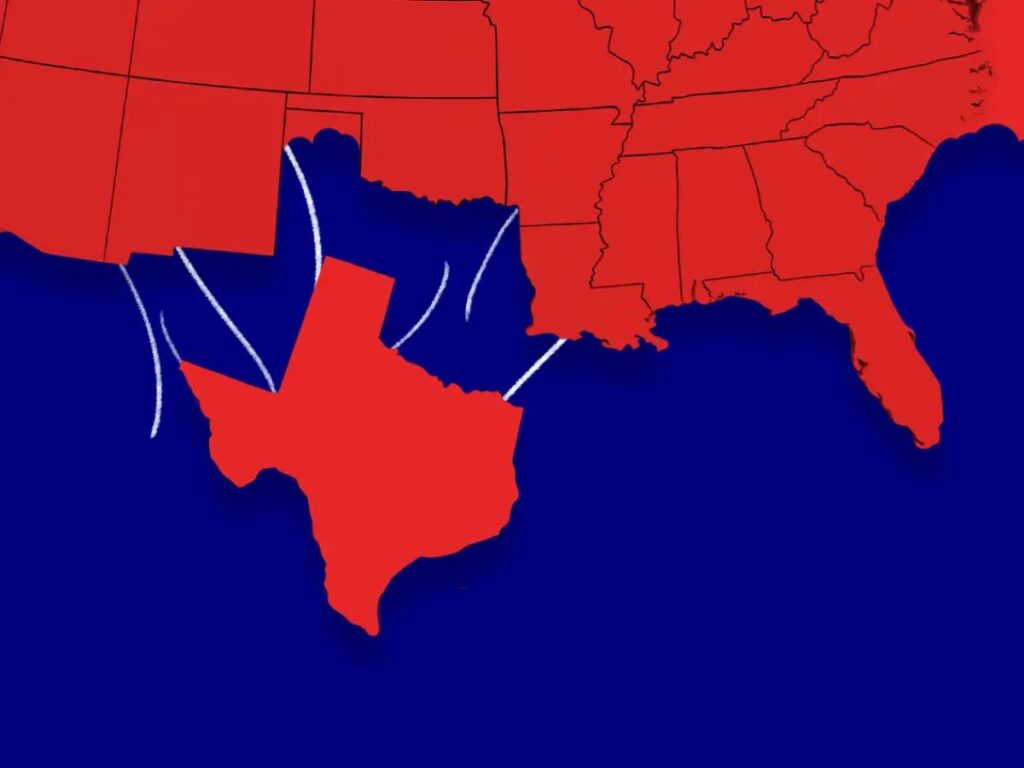The notion of Texas seceding from the United States has resurfaced, capturing attention and stirring debates nationwide. While it may seem like a far-fetched idea, the discussion surrounding Texas’ potential departure from the union has historical roots and political implications.
It was 15 years ago when then-Governor Rick Perry raised eyebrows with his suggestion that Texas could secede. Although Texas does not have the authority to secede from the United States unilaterally, Perry’s comments sparked conversations about states’ rights and independence.
Fast forward to the present, and the idea of Texas secession has been revived by Governor Greg Abbott, who has taken a more aggressive stance on the issue. Abbott has framed Texas’ relationship with the federal government as broken, citing concerns about immigration and border security.
“The federal government has broken the compact between the United States and Texas,” Abbott said as he called a recent theory that Texas is currently under invasion and, therefore, has the right to defend itself against outside threats, even if that means defying federal authority.
ALSO READ: Kristi Noem Rallies Support for Abbott, Offers to Drive Him More Razor Wire
That statement was the latest in a fight that had reached the U.S. Supreme Court already after Texas blocked federal officials from cutting razor wire put in along the border so they could reach migrants, some in need of medical aid.
Abbott’s rhetoric has resonated with the far-right faction of the Republican Party, garnering support from governors and politicians across the country. The debate over Texas secession has reignited discussions about states’ rights, federalism, and the role of government in addressing pressing issues like immigration.
However, it’s essential to separate political posturing from legal reality. The Constitution clearly states that states cannot unilaterally defy federal law or secede from the union. While states may have autonomy in certain areas, ultimate authority resides with the federal government.
POLL — Should the U.S. Government Create a Path to Citizenship for Undocumented Immigrants?
Despite the legal constraints, Abbott’s stance on secession has bolstered his political standing within the Republican Party, particularly among former President Donald Trump supporters. By positioning himself as a champion of strict border policies, Abbott is positioning himself as a potential leader within the party.
“This is the number-one issue in America,” Abbott said. “Americans want a secure border. If Joe Biden federalizes our National Guard, that would be the biggest political blunder you can make, and that’s why I think he will not do it.”
ALSO READ: Texas Takes Border Battle Against Biden Up a Notch, Denies Federal Authorities Entry
Yet, the practical implications of Texas secession remain unclear. While Abbott has taken bold actions to address immigration and border security, critics argue that his approach is ineffective and potentially harmful. The deployment of National Guard troops and law enforcement officials has done little to stem the flow of migrants or address the root causes of immigration.
Ultimately, the debate over Texas secession is as much about politics as it is about policy. While Abbott may be using the issue to bolster his political ambitions, secession’s legal and logistical challenges are significant. As the discussion continues, it’s essential to separate rhetoric from reality and focus on pragmatic solutions to pressing issues facing the state and the nation.
You Might Also Like:
Biden Attends Dignified Transfer of Service Members Killed in Jordan Drone Strike
Mom of Michigan School Shooter To Testify in Manslaughter Trial
Massachusetts Senate Votes Sweeping Gun Bill to Fight Ghost Guns and Assault Weapons
US Air Force Preps for Mega Overhaul to Match China’s Military Build-up
Boston Officials Arrest Man Threatening to Bomb Jewish Synagogues
